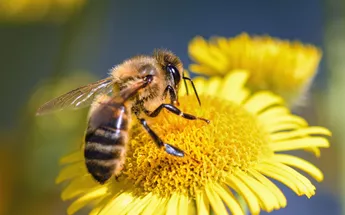Dig into the benefits of Gardening
Aside from the obvious enjoyment that comes with tending to a new garden plot, there are numerous mental and physical health benefits working their magic in the background. This is the case for all ages, but it is especially true for older people – we take a look at these benefits in more detail.
Gardening is a beloved pastime enjoyed by people of all ages across the globe. Recent studies have revealed that the COVID-19 pandemic in 2020 led to a surge in interest in gardening, with more people spending time at home and turning to their gardens for solace and to connect with nature. This resulted in a significant increase in the number of individuals who have taken up gardening as a hobby and found it to be an enjoyable and fulfilling activity.
In this blog post, we delve into seven of the many advantages of gardening, providing a detailed exploration to help you appreciate them and inspire you to put on your gardening gloves, get in the garden (or any available space), and start digging.
1. Outdoor gardening can help your immune system's functionality
You’re more like a plant than you think! Gardening outdoors usually means there's sunlight present (let's face it, you’re not heading out in the mid-February snow) and sunlight, when directly touching our skin, allows our body to create vitamin D. Vitamin D is both a nutrient we eat and a hormone our bodies make. It is a fat-soluble vitamin that is well known to help the body absorb and retain calcium and phosphorus, which are critical for building bone. Laboratory studies show that vitamin D can help fight disease, control infections and reduce inflammation.
2. Increases mobility and exercise, improving your physical health
Mowing, raking or digging might not be the first things that spring to mind when you think of a workout, but gardening can actually be a very effective form of low-intensity exercise that works the entire body. The activities associated with gardening can help to increase overall muscle strength, balance, and flexibility, helping you stay mobile, and keeping the heart healthy. The tasks you do in the garden can also burn some serious calories, with weeding burning up to 400 calories an hour and studies finding that the physical exertion of working in a garden may help offset age related weight gain.
If you're not used to much physical activity, gardening may initially be challenging for you. However, with time, your body will adapt, and you will notice an improvement in your balance, strength, and flexibility. If movement is a challenge, gardening can be modified to suit your needs. For instance, you can use a small stool or raised garden bed if you suffer from back pain, or a shovel or rake to support your knees when squatting. It's also easier to work with smaller pots that are lighter and easier to move than larger ones. You can start with basic tools, a small selection of flowers or plants, and smaller bags of soil that are more manageable to carry.
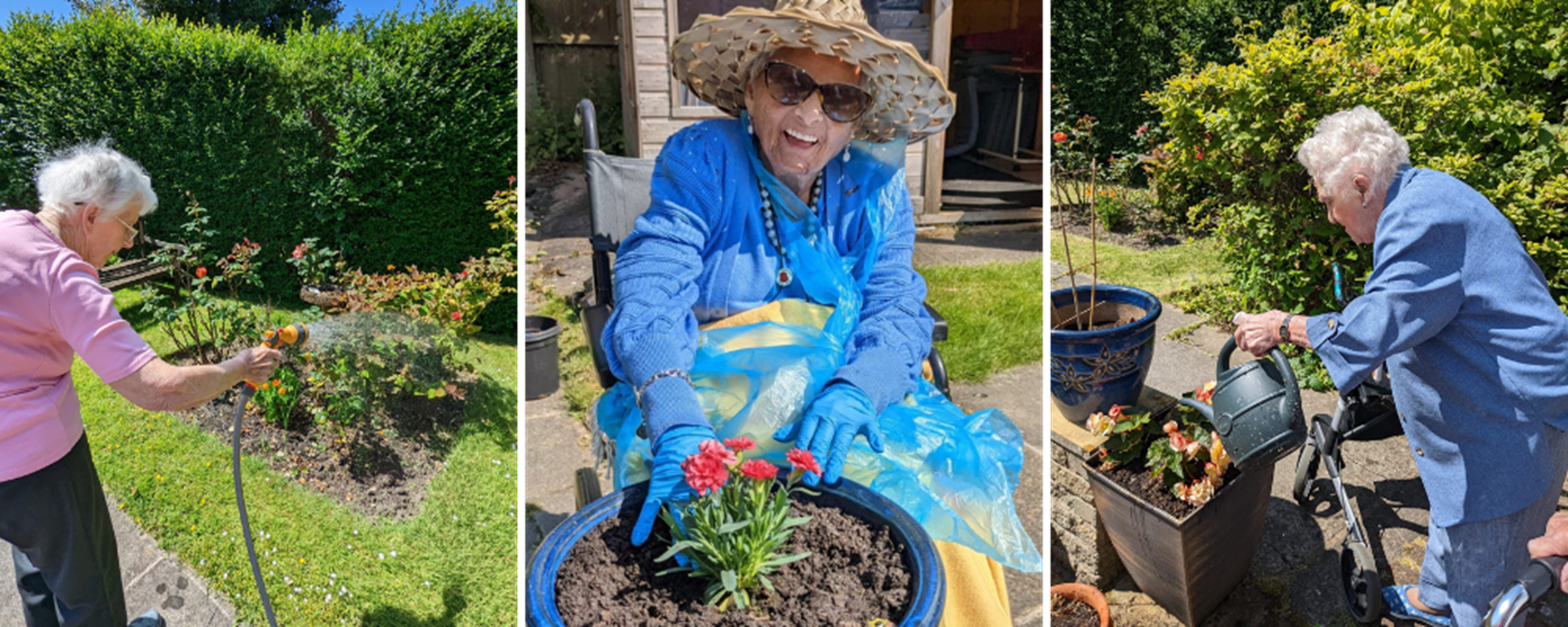
(Photo: Residents of Abbeyfield House, Bramhall enjoying their garden)
3. Boosts your mental health and protects your memory
The benefits of gardening go far beyond just our physical health. By engaging in activities such as physical movement and spending time outdoors, as well as caring for and nurturing plants, gardening has been shown to have positive effects on our mental health. It can provide a sense of purpose and accomplishment, which can greatly contribute to our overall mental well-being.
Doctors have also known for some time that physical exercise can boost brain function, and recent research suggests that engaging in gardening activities can stimulate the growth of memory-related nerves in the brain. A study conducted in Korea involved patients with dementia who were given 20-minute gardening sessions at an inpatient facility. Researchers observed that after the patients had completed tasks such as planting and raking in vegetable gardens, there was an increase in certain brain nerve growth factors associated with memory. Engaging with nature, getting physical exercise, and experiencing sensory stimulation are all crucial factors in maintaining cognitive function, which can help to lessen the effects of conditions like dementia.
A beginners guide to gardening
Whether you have a small balcony or a large space, gardening can be a relaxing and rewarding hobby. It is the perfect way to connect with nature and truly reap what you sow.
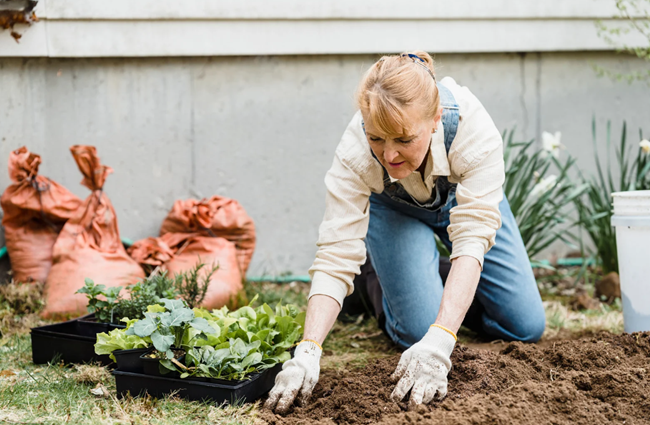
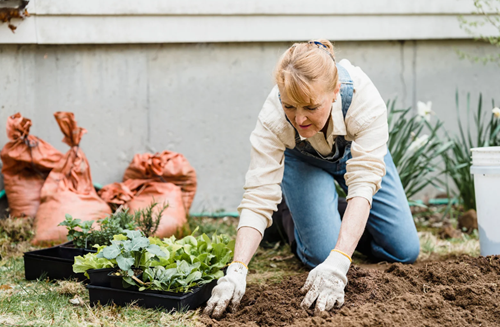
4. Gardening with others fosters feelings of connection
Gardening is a wonderful way to build social connections and bring people together. The gardening community is full of helpful individuals who are willing to share their knowledge, spare time, and even plants with those who are just starting out. Participating in community gardening has been shown to improve mental health and well-being, as well as foster positive relationships within the community. This activity provides opportunities to form new friendships, engage in recreational activities, and learn from experienced gardeners. Community gardening is a great option for both beginners and experts alike.
5. It creates a beautiful space where you can relax
Gardening offers the great benefit of creating a beautiful and relaxing space for yourself. When investing your efforts in customising and crafting your garden, the reward is the ability to enjoy it, share it, and watch it flourish.
When you're not socialising, your garden can be your own private place of relaxation. Spending time outside in nature has numerous benefits for your well-being. Any garden can be transformed into a peaceful haven and retreat, providing you with the perfect space to breathe in the fresh air, listen to the soothing sounds of birds and flowing water, and enjoy the sweet scent of blooming flowers nearby. Time spent in the garden can be a real treat for your senses. As the saying goes, "A Sunday well spent brings a week of content." What better way to spend your Sunday than in the garden with a good book and a refreshing drink?
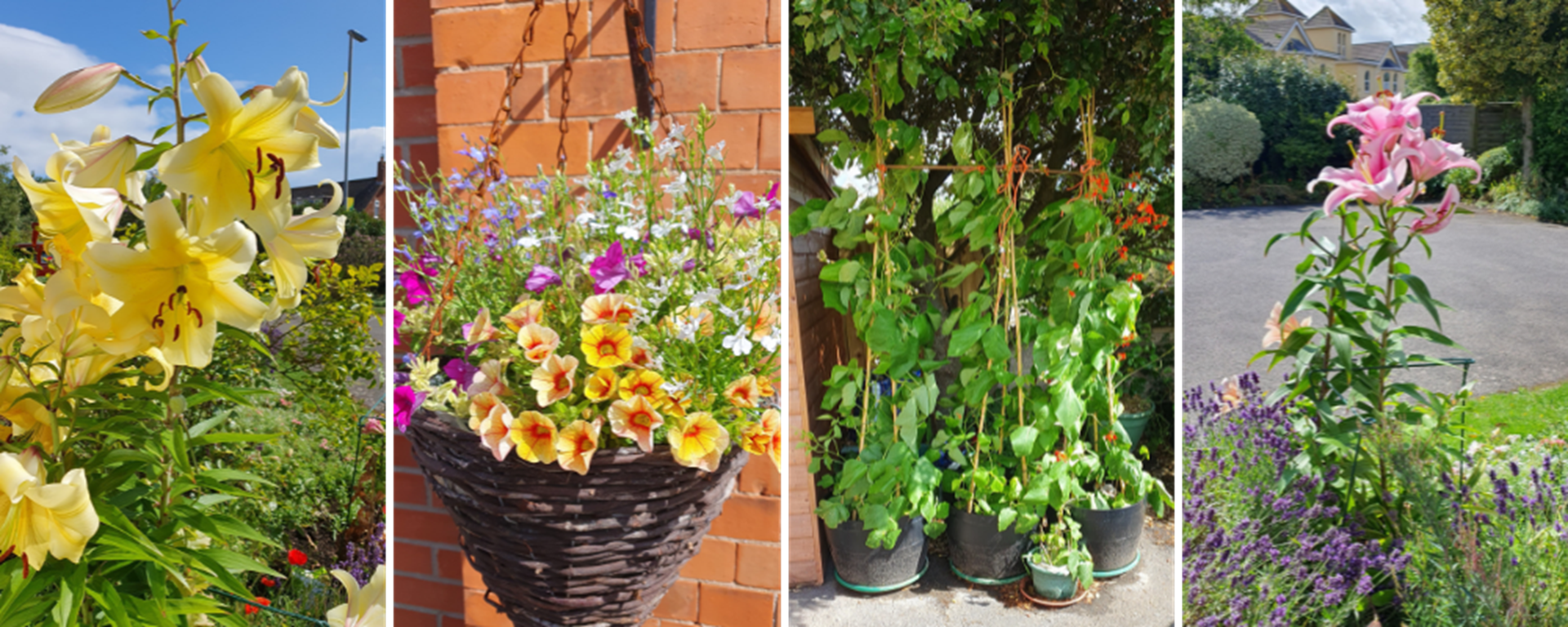
(Photo: The incredible work of residents at Abbeyfield Burnham & Highbridge Society)
6. It relieves feelings of stress and anxiety
Nearly all forms of exercise can reduce stress, including gardening. Research has proven that following a routine can improve mental health by reducing stress and anxiety and uplifting mood. Engaging in gardening routines such as watering and weeding can create a calming rhythm that helps alleviate stress. Gardening also triggers the production of serotonin - the hormone responsible for triggering positive feelings. Spending time outdoors and basking in the sun can further enhance your mood, making gardening an effective stress reliever. The sense of accomplishment that comes with gardening can also be incredibly satisfying and rewarding.
7. You begin eating healthier
Many people who enjoy gardening go on to start growing their own fruits and vegetables, and in turn, improve their diet and nutrition. Incorporating more organic, homegrown foods into your diet ensures you’re eating produce free from pesticides, fertilisers and other additives. Food from your garden is fresher, more nutrient-rich and cheaper too.
Various vegetables offer different health benefits. For example, tomatoes are rich in vitamin C and potassium and also contain lycopene, an antioxidant that has the potential to reduce the risk of some cancers. Sweet potatoes are high in beta-carotene, another antioxidant that may slow down the ageing process. Spinach is known to enhance the immune system, while broccoli helps protect the body's cells from harm. Peppers contain capsaicin, which has anti-inflammatory properties and may help lower the risk of heart disease. It's amazing how much good nutrition can positively impact the body.
Ready to dig in?
All it takes is rolling up your sleeves and getting your gloves on. In turn, you’ll reap the benefits from gardening in the long run. The more you dig, plant and weed, the better your physical activity levels will be. The nutritious and fresh harvests for your dinner table and blooming flowers are a bonus. No longer does gardening need to be seen as a chore but rather as an investment in your quality of life.
Discover more about gardening...
Growing your own vegetables for better nutrition
As we age, a nutritious diet becomes vital for our wellbeing. Growing your own vegetables ensures a fresh supply of nutrient-rich produce. We look at the benefits of growing your own vegetables and how you can start to grow your own.
How to encourage bees into your garden
Bees play a vital role in pollinating plants, helping them to produce fruits, vegetables, and seeds. Without bees, our gardens and crops would struggle to survive, so it's important to encourage them into our gardens whenever possible.
How to upcycle your garden furniture
It is nice to spend time in the garden in your favourite sunchair, but outdoor furniture can sometimes look a little worse for wear! Here we have some ideas for making your furniture look new again.

